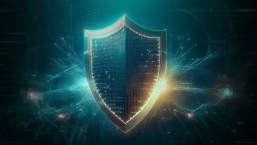A top internet security official in China has said that his organization has “mountains of data” on U.S. cyber attacks against the country.
Huang Chengqing, the director of the National Computer Network Emergency Response Technical Team Coordination Center of China (CNCERT), made the comments in the state-run China Daily newspaper, calling for greater cooperation between the two states on hacking. His comments come in advance of the first meeting between President Barack Obama and Chinese President Xi Jinping this week.
"We have mountains of data, if we wanted to accuse the U.S., but it's not helpful in solving the problem," Huang said, as reported by Reuters.
Huang claimed that the U.S. had focused on “cases that they never let us know about. Some cases can be addressed if they had talked to us, why not let us know? It is not a constructive train of thought to solve problems."
Huang said that the alleged theft of advanced U.S. weapons system data, reported by the Washington Post, revealed basic security errors. "Even following the general principle of secret-keeping, it should not have been linked to the Internet," Huang said.
Last month, China accused the United States of being, “the real hacking empire”, in the wake of a Pentagon report which said for the first time that cyber attacks on the U.S. were “directly attributable” to Beijing.
A report published in a newspaper affiliated to the Chinese Communist Party accused the American government of "trumpeting China's military threat to promote its domestic interests groups and arms dealers,” and said, “U.S. arms manufacturers are gearing up to start counting their money".
The response was published in the People’s Liberation Daily in May,. The editorial was also carried on China’s Defence Ministry’s website.
"As we all know, the United States is the real 'hacking empire' and has an extensive espionage network," the report said. “In recent years, the United States has continued to strengthen its network tools for political subversion against other countries".
According to ESET security researcher Stephen Cobb, this type of public accusation and counter-accusation is likely to continue now that the international community has moved the "debate" into the open: "A year ago these things were being said behind closed doors and now the arguments are out in the open, which hopefully marks a step forward in achieving some level of detente with respect to cyber espionage, although that is probably a long way off."




